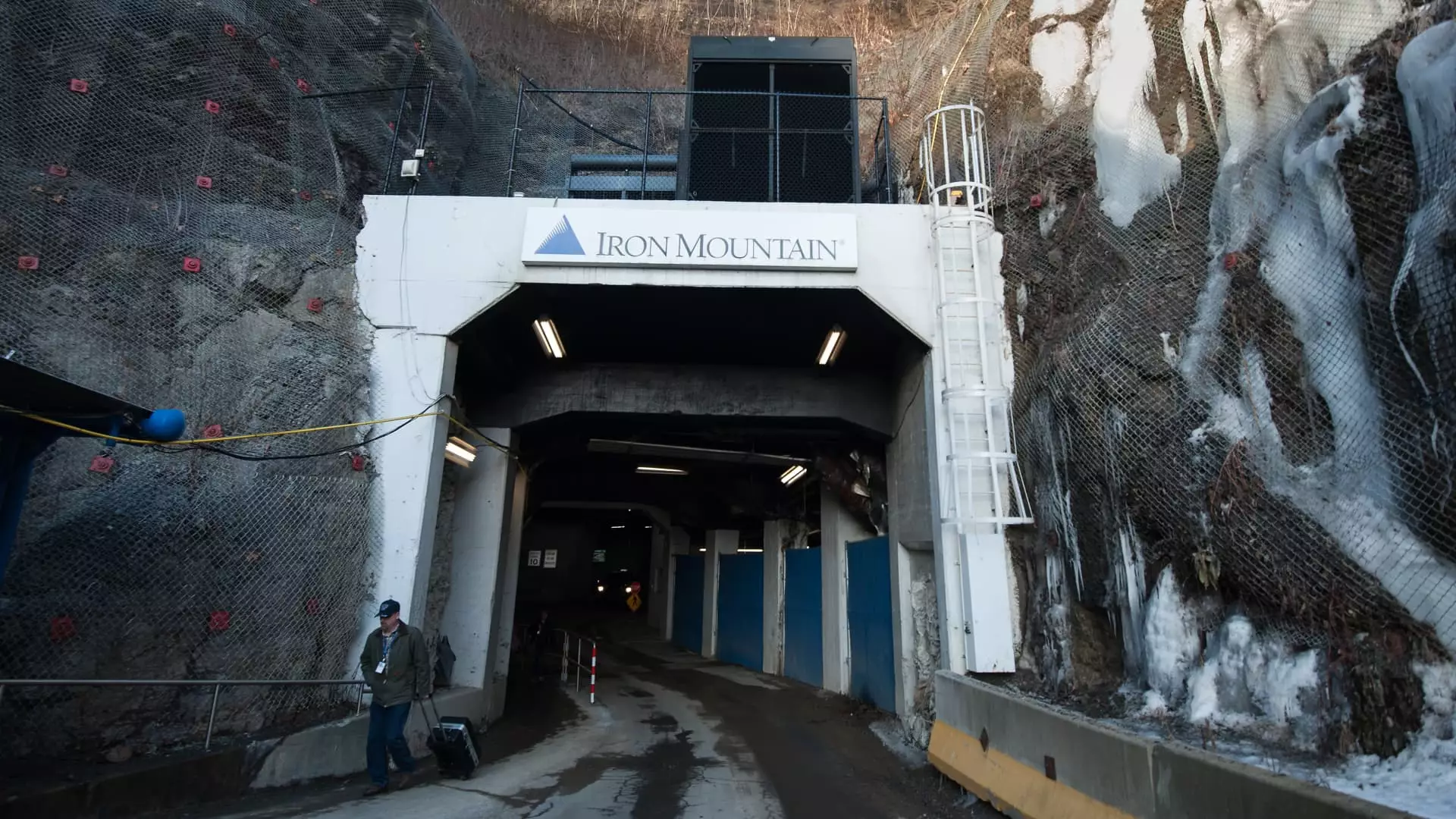In a surprising Oval Office encounter last Tuesday, tech mogul Elon Musk seized the microphone to discuss what he termed the inefficiencies plaguing the federal government. His anecdote centered around an outdated limestone mine utilized for storing crucial retirement paperwork, a facility he deemed significantly out of touch with the modern age. Armed with a vivid description, Musk claimed the mine, established in 1955, felt like a “time warp,” complete with an elevator that symbolically controls the speed at which government processes retirements for federal employees. While this narrative brought humor to the dreary process of federal bureaucracy, it also raised serious questions about the government’s operational methods.
Musk’s remarks about the mine, which is managed by a lesser-known company called Iron Mountain, sent ripples through the stock market, causing the company’s shares to plummet. More than just a quip, his comments highlighted a far broader issue of government inefficiency and how technology could disrupt traditional systems to enhance productivity.
The Response from Iron Mountain’s Leadership
In the aftermath of Musk’s statements, Iron Mountain CEO Bill Meaney quickly leaped to defend the company’s honor and vision. During a Thursday morning earnings call, he framed the government’s pursuit of efficiency as a potential “growth opportunity” for Iron Mountain. The company has been promoting its capabilities in digital transformation, boasting partnerships with over 200 federal agencies, which positions it well to capture new business should the government modernize its services.
While Meaney acknowledged that his company earns only $10 million annually from the federal contracts for physical document storage, he stressed that their digital transformation and data center initiatives generate a thriving $130 million in revenue. This disparity indicates a significant momentum shift within the company, one that could be complemented by the federal government’s push for modernization.
Musk’s dialogue, albeit somewhat humorous, catalyzed attention toward obsolete document storage methods at the federal level. His candid critique of Iron Mountain’s services underscores a broader concern: are tax dollars being squandered on antiquated practices? This critique arrives at a time when the inefficiencies of government-funded operations are under increased scrutiny, particularly from those advocating for slashing spending.
For investors, Musk’s comments signaled potential upheaval regarding Iron Mountain’s federal contracts. Shares have nose-dived over 10% following speculation that these vital agreements could face dismantlement under the Trump administration, which has emphasized spending cuts and operational efficiencies. Such uncertainties cultivate a fertile ground for investor anxiety, especially in the face of a company that relies substantially on government funding.
In financial circles, the reaction to Iron Mountain’s declining stock prompted mixed responses. Critics cited fears that Musk’s commentary signaled an impending reevaluation of federal contracts, prompting a sell-off among investors. However, analysts like Wells Fargo’s Eric Luebchow downplayed such concerns, arguing that Iron Mountain’s revenue is diversified enough not to be significantly affected by any one customer.
Moreover, Luebchow noted that even if the government did decide to terminate contracts, the fallout might be mitigated by termination fees, which could afford Iron Mountain a buffer. This contingency negates the stark panic that Musk’s comments initially incited. Barclays analyst Brendan Lynch reiterated that the legal mandates for record-keeping would likely stabilize demand for services like those offered by Iron Mountain.
What Musk’s pointed criticism ultimately reveals is a unique confluence of technology, government inefficiency, and company strategy. As federal agencies grapple with the imperative for modernization, companies like Iron Mountain may find themselves not merely as service providers but as vital partners in ushering the federal government into a more efficient era. The dialogue initiated by Musk serves as a reminder that innovation can unearth antiquated practices that undermine governmental productivity.
In this dynamic landscape, both Musk and Meaney have underscored the critical need for reviewing and retooling the future of federal processes. Embracing technological change may not only be a boon for companies like Iron Mountain but could also translate into improved services for federal employees. Ultimately, while Musk’s initial remarks might have sown seeds of doubt, they simultaneously outlined a path toward transformative efficiency that could reshape the relationship between federal agencies and their service providers in the years to come.

